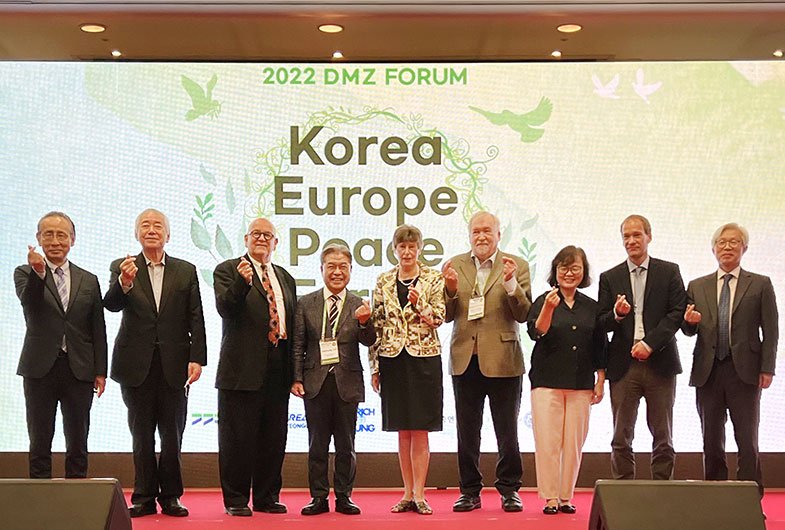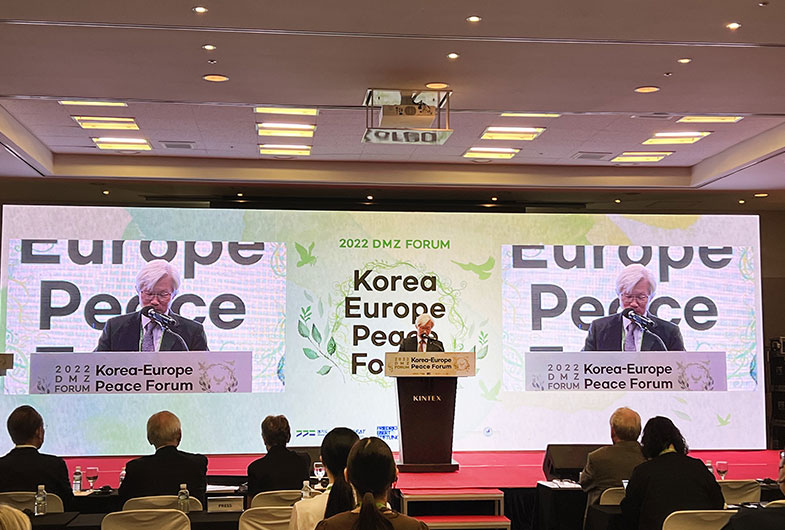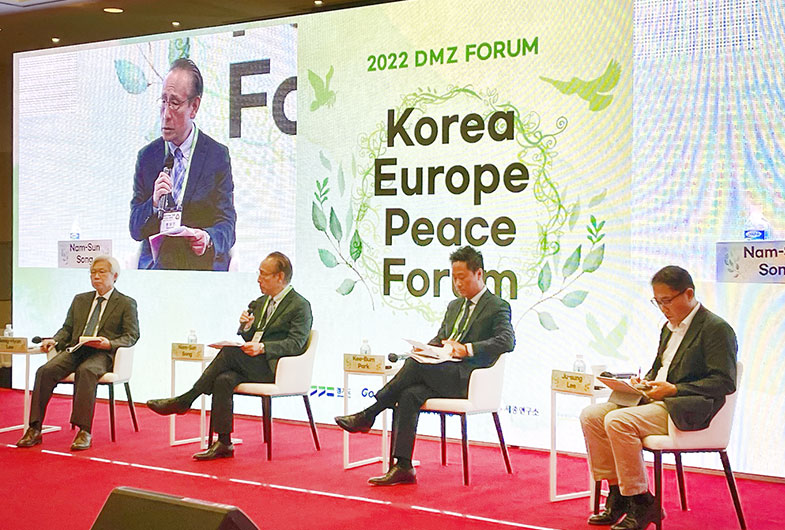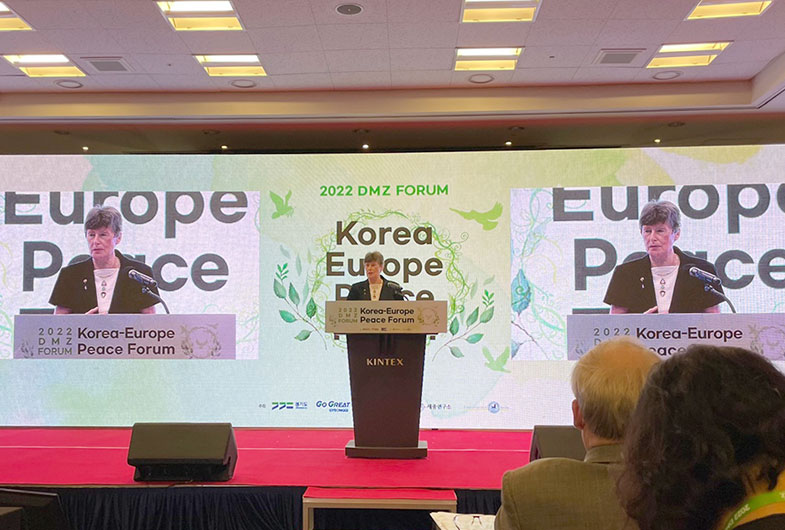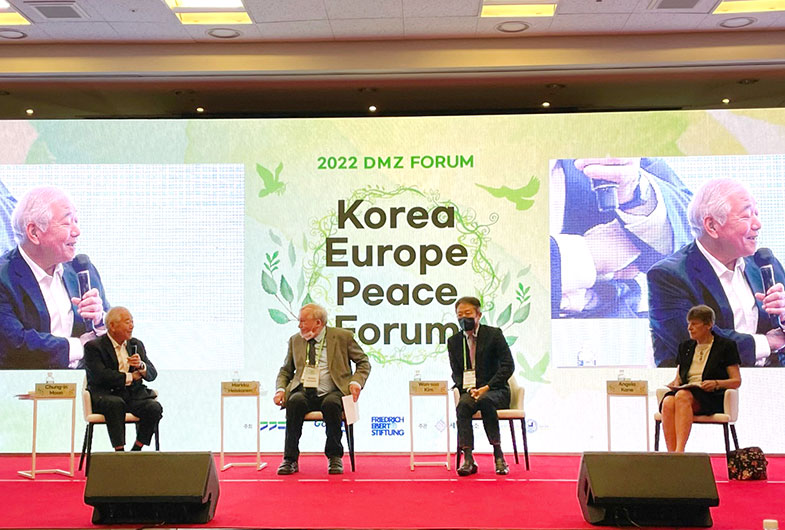The Sejong Institute participated in the 2022 DMZ Forum hosted by Gyeonggi Province at KINTEX in Ilsan on September 16-17, and held a Korea-Europe Peace Forum session. The Korea-Europe Peace Forum was organized by the Sejong Institute and Free University of Berlin's Institute of Korean Studies and sponsored by Gyeonggi Province and the Friedrich Ebert Foundation in Germany.
Session I, held on the 16th, was hosted by Chairman Moon Chung-in under the theme of "Rebuilding Destroyed Peace and Public Security: From Europe's Success and Failure." The first part of International Session II, which was held on the 17th, was hosted by Lee Sang-hyun, president of the Sejong Institute, under the theme of "Gyeonggi-European Cooperation Strategy." Song Nam-sun (Osaka School of International Public Policy, President of International Society for Korean Studies), Park Kee Bum (Harvard Medical School, Director of Korea Health Policy Project), and Lee Ju-sung (Secretary-General of Korea NGO Council for Cooperation with North Korea) attended as panels. The second part, which was followed by former Unification Minister Lee Jae-joung, was attended by Wolfgang Navak (former European Parliament member, the Sejong Institute international advisor), Glyn Ford (former European Parliament member, Track 2Asia director), and Lee Eun-jung (Free University of Berlin, president of Korean Studies Institute).
The panel pointed out that South Korea should take a clear stance against the obvious violation of international norms of military aggression regarding the Ukraine crisis. Moreover, it was concluded that Russia's invasion of Ukraine is a major threat to the existence of the CSCE (now OSCE), which became the foundation of European multilateral security since the Cold War, and is a new issue for mankind to create a 21st century Helsinki Spirit.
Given that even international organizations as well as government-to-government are unable to contact North Korea, academic circles, NGOs, and humanitarian assistance are considered a way to engage with North Korea. In order for North Korea to resume its involvement, it is necessary to take into account the distrust between North Korea and the international community, concerns about the North's quarantine and instability in the regime. In order to prevent the suspension of civilian exchanges due to political and military circumstances, some suggested that an Agreed Framework is needed to protect the framework of civilian exchanges among major stakeholders. The most urgent task now is to find an entry point to resume engagement with North Korea.
